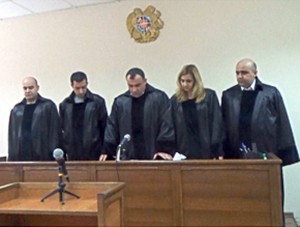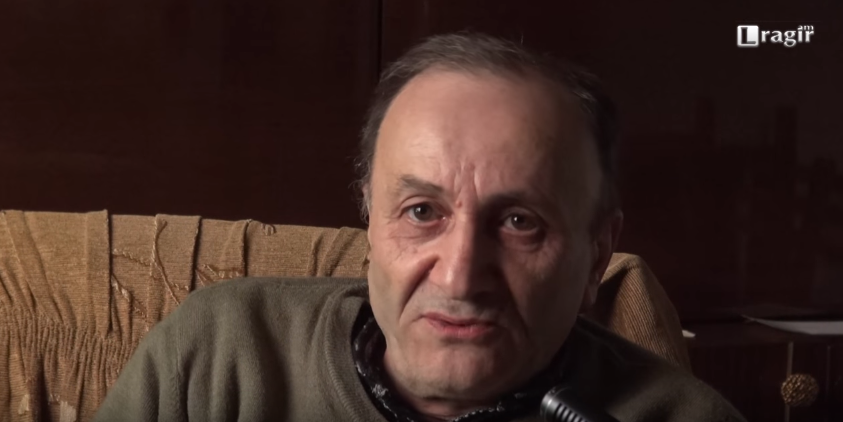The RA Administrative Court of Appeal accepted Peace Dialogue NGOs appeal against the Administrative Court’s decision.

The RA Administrative Court of Appeal in its decision of April 25, 2016 allowed Peace Dialogue NGOs appeal against the RA Administrative Court’s decision (11.03.2016) to proceed. The Administrative Court had rejected the organization’s appeal which challenged the legitimacy of the classification of secret information as described in Section 17, Point 42 and 43 of the list provided by Executive Order N9 of the RA Ministry of Defense and to partially annul the executive order.
According to lawyers Arthur Sukiasyan and Mushegh Shushanyan, who are representing the interests of Peace Dialogue NGO, they appealed on the grounds that a significant aspect of procedural law violations is that an appeal is allowed so that the Court can examine the application to annul the points of the Executive Order, however, the materials which are supposed to serve as the basis for making the contested order were lacking in the case when it was heard by the Administrative Court. Therefore, the Court’s findings and conclusions are not based on the actual materials in question. The Court had also dismissed the plaintiff’s motion requesting the examination of evidence thus depriving the applicant an opportunity to fully present its position and claims. The Administrative Court’s decision ignored the clear restrictions of classifying the information as state or official secrets as defined in the Article 9 of the RA Law on “State and Official Secret”. The justification for rejecting the application, the Administrative Court said.
“…taking into consideration the field (military) to which the information listed in point 42 and 43 and the nature of that information, the Court finds that in specific military or political situation the disclosure of such information in objective reality may contain a threat for the security of Republic of Armenia.”
The lawyers feel that by accepting the appeal the court is suggesting that these actions undermine the requirement of preserving the law and gives too many opportunities for individual self-interest over the rule of law. Their decision could imply that any administrative body can ignore the law, legal regulations and other restrictions prescribed by law and guided only by their personal perception or vision of the need for secrecy under the guise of public interest, thus arbitrarily restricting people’s rights and freedoms.
According to lawyers M. Shushanyan and A. Sukiasyan all the conclusions made in the judicial act in this regard are groundless because the Administrative case does not contain any information about the Armenia’s military or political situation or about the threat to Armenia’s security. It would have been lawful to make conclusions such as this if the Court could investigate the materials that served as a basis for the Executive Order and if those material do contain information about a specific political and/or military situation and the security threats mentioned by the Court.
The Court made its decision in the absence of relevant information in the administrative court, thus making a judicial act with no justification which contains absolutely no explanation how the encrypted information can influence the political and military situation of the Republic of Armenia and threaten the security of Armenia.
Among other errors the Administrative Court made during the trail and in rejecting the appeal, the lawsuit states that the Court violated the plaintiff’s right of the protection of human rights and fundamental freedoms as guaranteed by Article 10 of the European Convention. Paragraph 1 of this Article provides that the right to freedom of expression, among other rights, includes the freedom of receiving and sharing information and ideas without interference by public authority and regardless of boundaries.
Photo is from http://www.epress.am/
Posted 14 May, 2016















